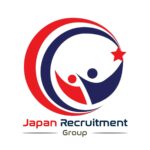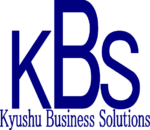
For many teachers and professionals living in Japan, December is a time for reflection on growth and choices in the past year.
In fact, most full-time university faculty in Japan are required by their institutions to write everything they have accomplished down, and this is something that all jobseekers and professionals should consider doing as it has more than one purpose. The first is that it reminds us of accomplishments since last new years’ resolutions. Another reason is that it helps to focus on where we want to go in the future, and to plan those changes for the new year.
By writing down what happened in the year, it is particularly helpful in seeing how much you have accomplished. Through articulating your accomplishments, it is easy to see more clearly how far you have come. Conversely, it should also be a motivator on what else you might have done – though this is not an exercise in self-flagellation, but rather self-awareness. So, while there may have been missed opportunities (and, it is essential to be mindful of those), focus on the positive. Therefore, start to look forward and what you will get done in the next year, and further into the future.
For universities, generally, the sections that are listed basically follow the philosophy of the Balanced Scorecard. These are four main areas that educators should keep developing; research, service, teaching experience, and education.
Academic publications are the first area that is required, with the publication name, type of article and if it is a peer-reviewed or not. The next section is the presentations that took place. And these should also be divided into those that were peer-reviewed (where you needed to submit your work before being accepted), and invited talks. The latter is where you are asked to do a presentation, seminar or even a class through an invitation.
Following that list are the non-peer reviewed published articles-those that are not considered academic, though are printed or posted into a public domain. The can include magazine or newspaper articles and anything else that you have completed (lesson plans in teaching publications for example).
Under the next section, service, includes participation with associations and organizations that you hold membership. Within your field of work, there are different ones that you can belong to, and that is particularly true for English teachers (many of them free).
Looking at the bigger picture
Consider taking your time doing this year-end rumination exercise, spreading the notetaking over several days as this will ensure that you have not forgotten anything. After doing so, then take time to look at yourself in a bigger picture.
In business, there is a way to evaluate the company or organization from a distance, and that is by looking at the Strengths, Weaknesses, Opportunities, and Threats (SWOT). This corporate tool was developed 60 years ago to ensure that businesses can review where their strong points are and how they can improve to counter competition and other issues that are threats to the organizations’ success. SWOT can also be adapted for personal reflective practice and implemented to help develop professional self-awareness. By adapting this corporate tool to view yourself from an objective viewpoint it can help you to improve your career marketability.
For educators, the academic CV combined with the Balanced Scorecard are invaluable, but the concept can be adopted to any field of work Strengths and weaknesses are taken as internal issues that are inward looking and are therefore personal areas to consider. Start with your strengths, and what you have with education, experience and abilities. Weaknesses are what you can improve, and what is most difficult to change. Be sure to ask others opinions on yourself, as they might surprise you.
Opportunities and threats are those from outside-areas where things can be accomplished, or those that might have detrimental effects on your career aspirations, or where there are options that can be explored. What opportunities can you find as far as furthering your education and skillset. Are there things you enjoy doing that can be transformed into career advancement? Additionally, threats are those outside that you need to see in the form of changes in the professional areas, or the overall business or even natural environment. It is essential to be aware of these as there are always changes that you should be prepared to deal with as they arise.
Compare your personal SWOT with the annual reflection on your accomplishments that you have just done to see how they have worked together and might have been improved to increase your marketability and movement towards the new goals that you have set.
An annual career refection will inevitably lead to better clarity in where you should be going and mapping out how to get there. After taking the time to get everything down, it should help to decide what you want, where you want to be located and what salary you want (and the pay you deserve-keep a positive approach). Be sure to write it down as written articulation helps to create it a more “real”, Use the SMART goals systematic approach (with MTO) to getting what you want in the new year. Then keep everything within easy reach to review regularly.
Ensure that your new year’s resolutions are not just spur of the moment promises that are largely forgotten. Invest the time to turn your wishes into a determined actionable plan for a better job and career.
Written by Richard Miller














